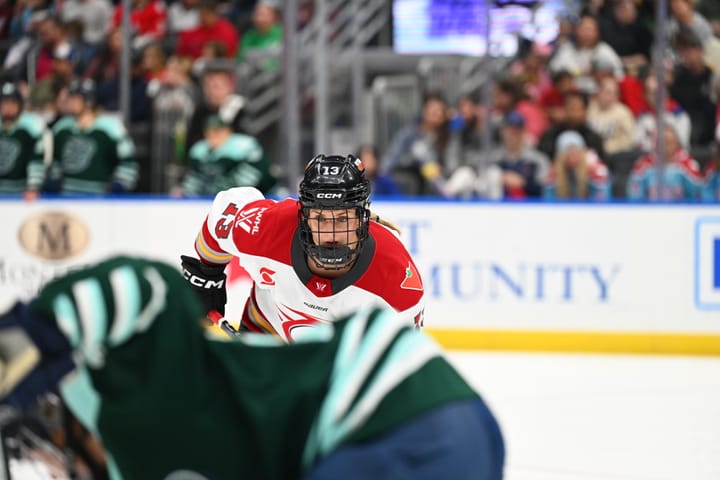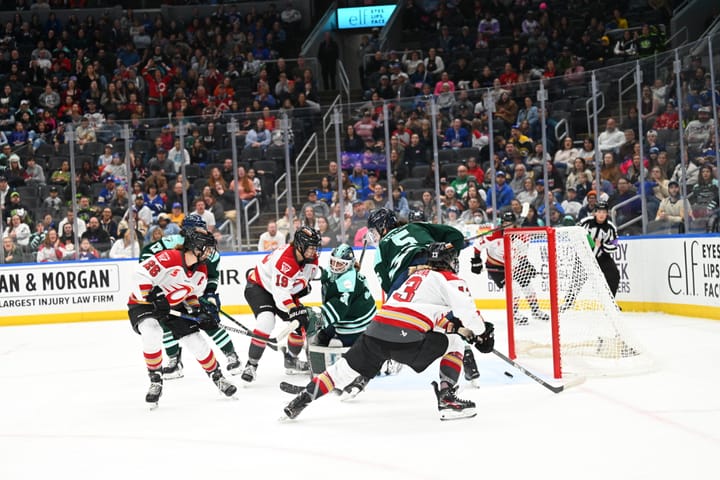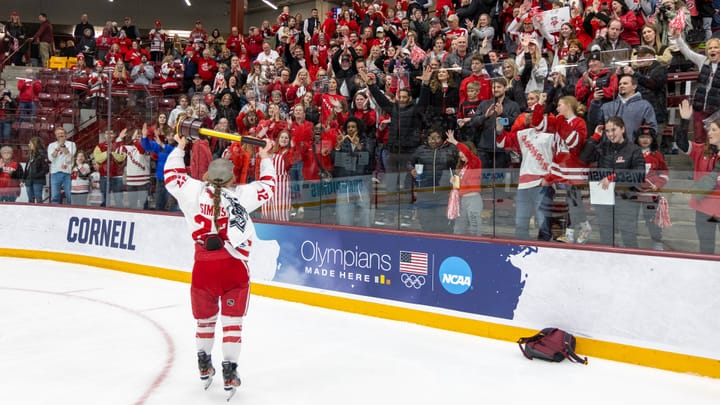NWHL statement on ending racism is a tentative start
The league introduced a jersey patch ahead of the Lake Placid tournament
This morning, the NWHL made official what many people have already pointed out in their review of the newest iterations of their respective teams’ jerseys: the presence of an “End Racism” patch on the right-arm sleeve.
The league also voiced its support for anyone who engages in “any peaceful action they may decide to take in the fight against racism,” according to NWHL Commissioner Tyler Tumminia, ostensibly a reference to the fact that a few players intend to kneel for the national anthems during games in Lake Placid.
The ensuing press release contained words like “inclusive,” “equality,” and “diverse.” It also provided statements from multiple players league-wide, including Saroya Tinker, Brooke Stacey, Rebecca Morse, and Kaycie Anderson. All expressed their commitment and their pride in wearing a token meant to symbolize the league’s intent to provide a safe space for all.
NWHL Players will Wear ‘End Racism’ Patches during the 2021 Season
— NWHL (@NWHL) January 22, 2021
Details: https://t.co/mFdqDf0rOx pic.twitter.com/sNG0J3DURq
Key word: symbolize.
Because while this is obviously a great gesture and one that Black players like Tinker, Whitney Dove, and Mikyla Grant-Mentis seem to be grateful for, it’s Step One of many in a sport that is overwhelmingly white and exclusive from the ice to the front office, no matter what gender is playing it. It’s Square One while many who support women’s hockey are on Square 100.
Exactly how does the league plan on ending racism? Are sales of the jerseys with this exclusive patch going to be portioned off to fund the Diversity and Inclusion Committee — or better yet, a program meant to bring hockey to communities of color? Do more than just a couple of players intend to kneel for the national anthem? If heaven forbid Tinker, Grant-Mentis, or any of the handful of Black athletes in this league have to deal with what K’Andre Miller dealt with on a Zoom call with fans, will their team and the league do the right thing?
And as the NWHL continues to grow and gather sponsorships, partnerships, exposure, does it plan on expanding that exposure to BlPOC women in the form of prominent positions within the league?
We don’t quite know, because there wasn’t a whole lot to go off of in that press release. And as a woman of color who writes about hockey and has been very vocal about my support of Black Lives Matter and ending injustice both inside and outside the rink, my biggest worry is that this will have zero follow-up, no bite behind the bark. I obviously can’t and will never try to speak for the players or anyone else, but that isn’t something I’m willing to deal with, both as a reporter and as a fan.
The National Women’s Hockey League has a wonderful opportunity to be a leader when it comes to actually standing up for Black lives, promoting Black voices and platforms, publicly denouncing police brutality (no matter who employs its players for their day jobs). Learning and holding the self accountable is one thing; holding others accountable in the locker room is another. And what about off the ice? At the dinner table, the bar, the coffee shop? Any time the racism itself is coded and not in-your-face? Is it truly going to be a moment where you “get uncomfortable” and maybe push someone to confront their own biases?
And are you ready to honestly get uncomfortable with yourself? To stop excusing yourself for not speaking up? To remind yourself you can’t wear a patch on the ice and then leave it to support politicians or public figures who have created policies that actively disenfranchise people of color?
The conversation will not end here. As the season progresses and even post-Isobel Cup Final, TIG intends to continue talking about opportunities we and others in women’s hockey have to truly push for the end to racism we all want. It starts with a patch, and it continues with viable, tangible action.





Comments ()